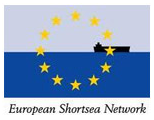EUROMED
HISTORY OF THE EUROMED TRANSPORT PROJECT
2003-2007 The EuroMed Transport Project aims to facilitate cooperation between the 12 Mediterranean Partner Countries with the goal of supporting the development of the future Euro-Mediterranean Free Trade Area and promoting regional economic integration by improving the functioning and the efficiency of the Mediterranean transport system
In the framework of the MEDA II Programme the European Commission decided, in November 2001, to undertake the first Euro-Mediterranean Regional Transport Project (‘EuroMed Transport Project’) with a financial allocation of 20 million euros.
“The MEDA programme is the principal financial instrument of the European Union for the implementation of the Euro-Mediterranean Partnership. The programme offers technical and financial support measures to accompany the reform of economic and social structures in the Mediterranean partners”
The EuroMed Transport Project, which started at the beginning of 2003 and will run for a four-year period until 2007, aims to facilitate cooperation between the 12 Mediterranean Partner Countries with the goal of supporting the development of the future Euro-Mediterranean Free Trade Area and promoting regional economic integration.
Expected Benefits The project will assist in the preparation of:
a Diagnostic Study of the regional transport system outlining the main challenges and bottlenecks, and;
a Regional Transport Action Plan addressing both policy and institutional measures and physical infrastructure issues.
The project will also:
contribute to reinforcing the Policy Dialogue among regional actors;
promote cooperation of the private sector, and;
establish tools for monitoring the performance of the sector.
The project aims at improving the functioning and the efficiency of the Mediterranean transport system and will concentrate on policy reforms and training/policy dialogue with transport policy makers. This regional approach will also have the side-benefit of developing a strategy for regional infrastructure development and building local capacity for the preparation and implementation of Related Projects.
Project Objectives
General Objectives
*to contribute to the overall economic and social development of MEDA countries through increased and more sustainable transport flows, more competitive trade and better balanced exchanges;
*to improve the quality, safety and efficiency of goods and passenger transport systems in the region, thus improving the functioning of the transport sector as a whole;
More specifically, the project aims to contribute to the development of the Euro-Mediterranean Free Trade Area and to promote economic integration among the 12 Mediterranean Partner Countries through providing assisting to these countries in:
*improving the functioning and the efficiency of the Mediterranean transport system by giving support to institutional and market reforms, promoting the harmonisation of operational norms and regulations and encouraging the coordination of transport policies
*developing and modernising the regional transport infrastructure network and ensuring its interconnection to the trans-European networks, by facilitating the mobilisation of resources for investment in commonly agreed priority infrastructure schemes
*promoting effective and efficient intermodal freight transport between the EU and the MEDA countries within the framework of the motorways of the sea concept, focusing on sea-land (rail, road and possibly inland waterway) connections and interfaces
Maps & Database Of Euromed
Efficient international freight transport is vital for the development of the Euro-Mediterranean Free Trade Area. In 2000, approximately 450 million tonnes of freight was transported to and from the MEDA countries. Almost half of this was crude oil and similar liquid bulk.
Sea is generally the most important mode for unitised (container) and general cargo as well as bulk transport. Short sea roll-on roll-off ferries are significant in the Western Mediterranean too. Road is important in the Eastern Mediterranean for flows between neighbouring countries. In the future, the largest increases will be in unitised freight.
The core regional transport network, where 'regional' means supporting flows between Mediterranean Partners and other countries, can be considered as a set of corridors. Corridors help focus financial resources for network development in areas of most benefit.
Existing transport infrastructure has evolved over time. There are more than 50 port installations. Rapid development of unitised freight poses the greatest challenge.
Road linkages between MEDA countries and serving ports within each country exist, although road condition and capacity is not always adequate. An extensive rail network exists in many countries. Rail serves well for transporting bulk freight, especially links to ports, but otherwise it is not developed for international transport in its current form.
Corridors
Corridors define the proposed Infrastructure Network. This network includes port and airport, rail and road infrastructure relevant to international traffic in the MEDA countries. It also takes account of previous studies and the work of the High Level Group.
Our Shortsea Promotion Center is a member of European Shortsea Network
